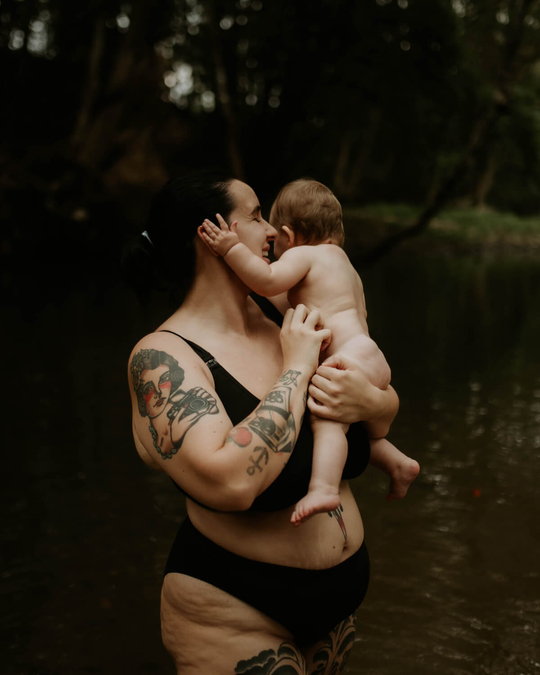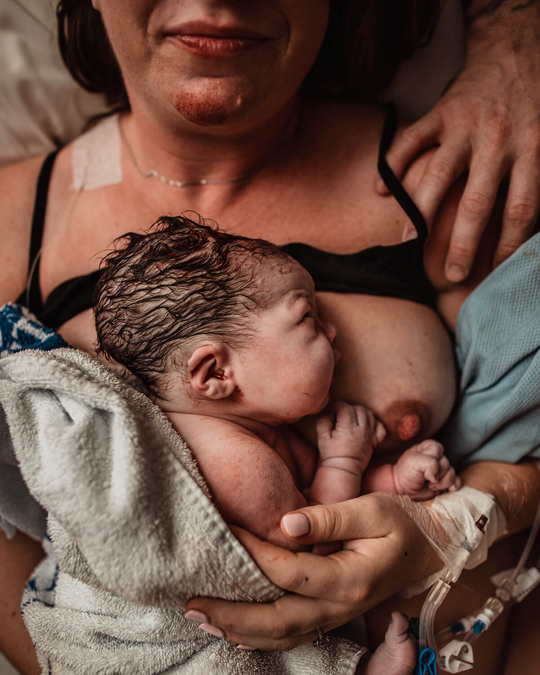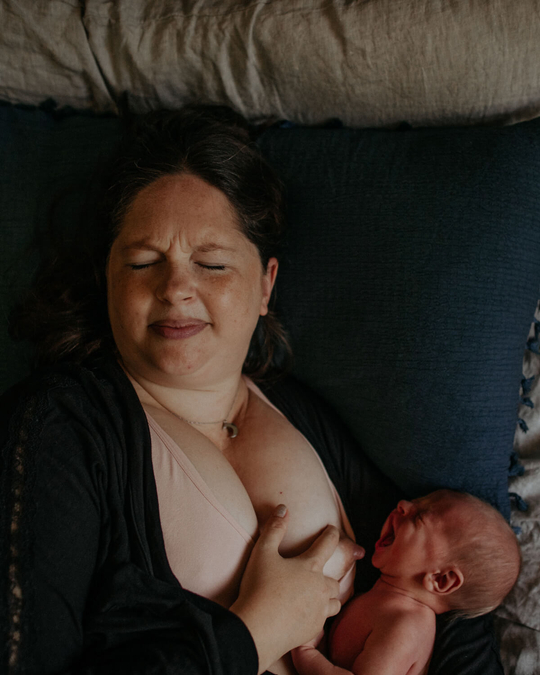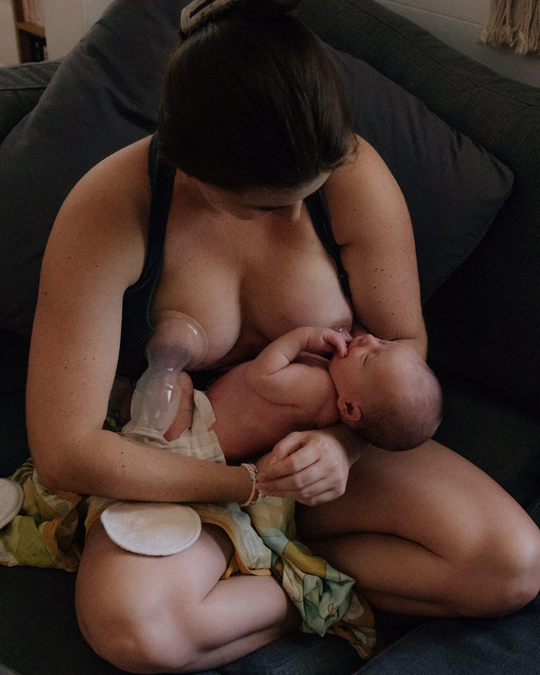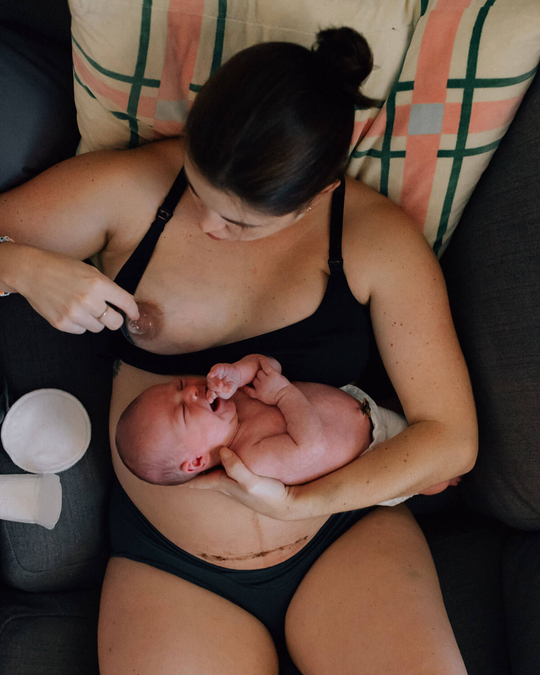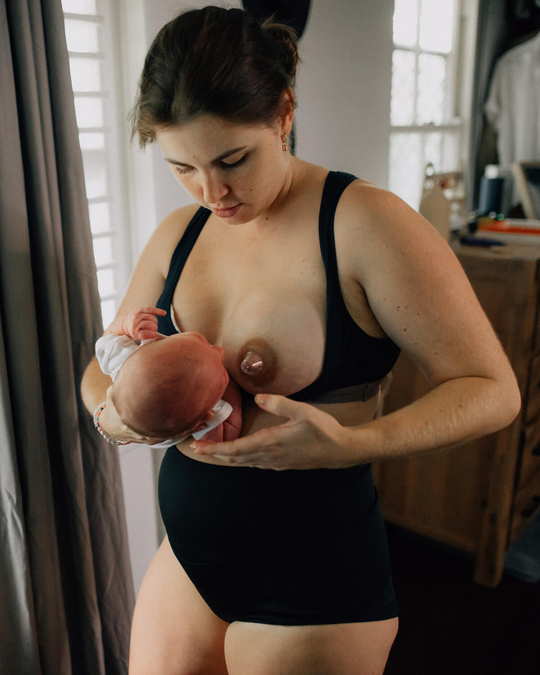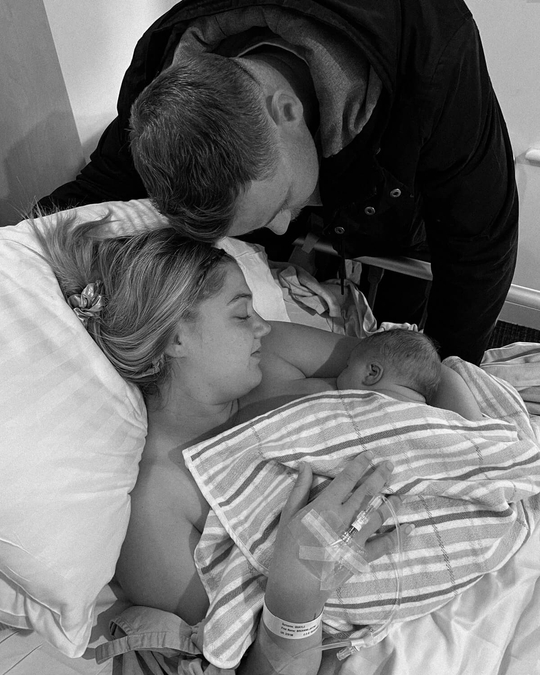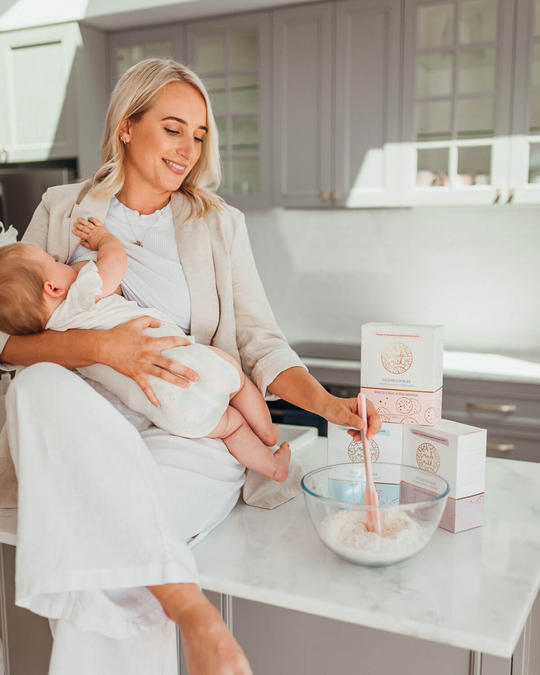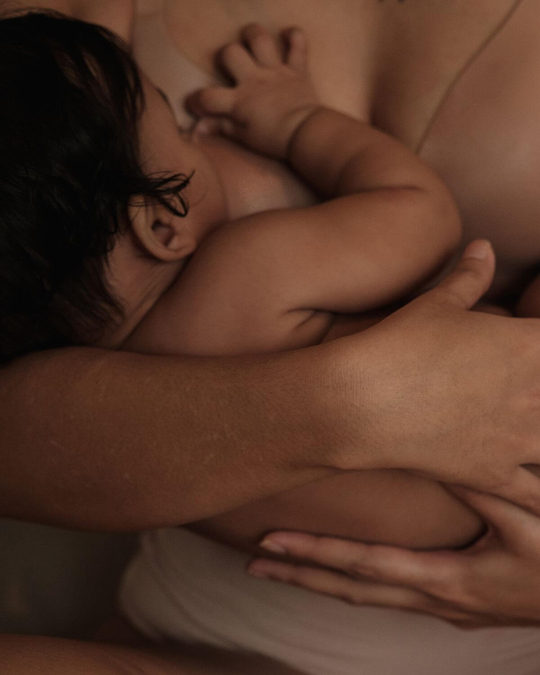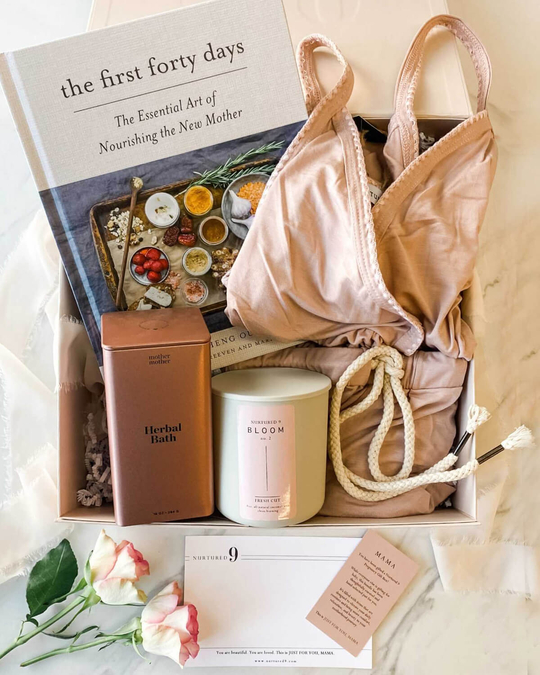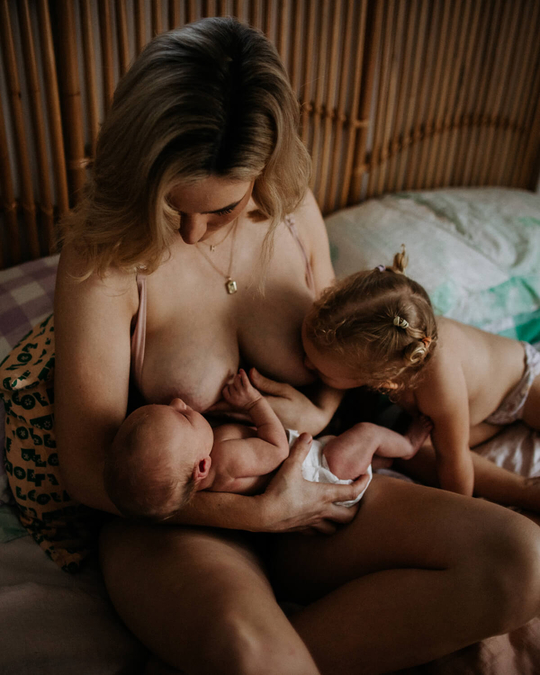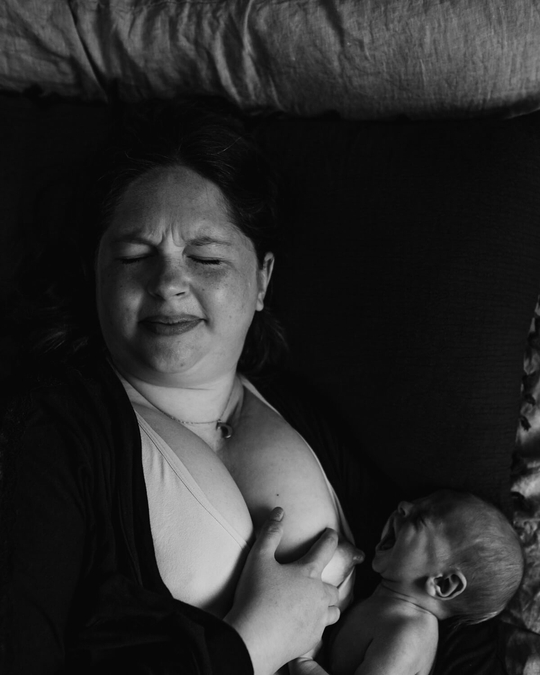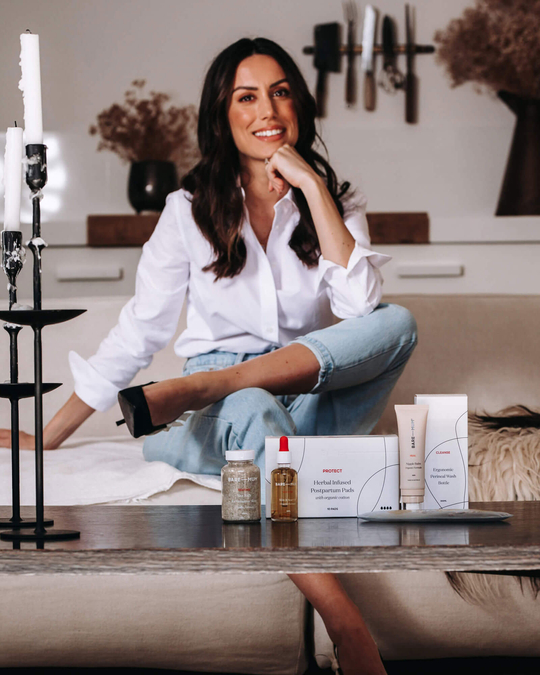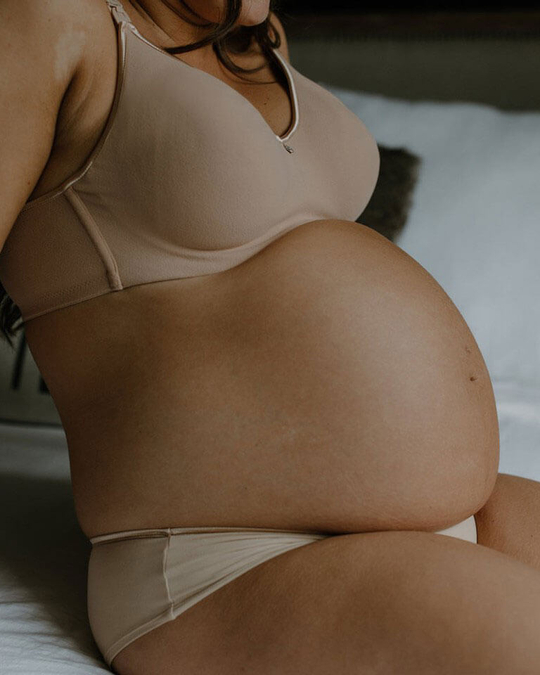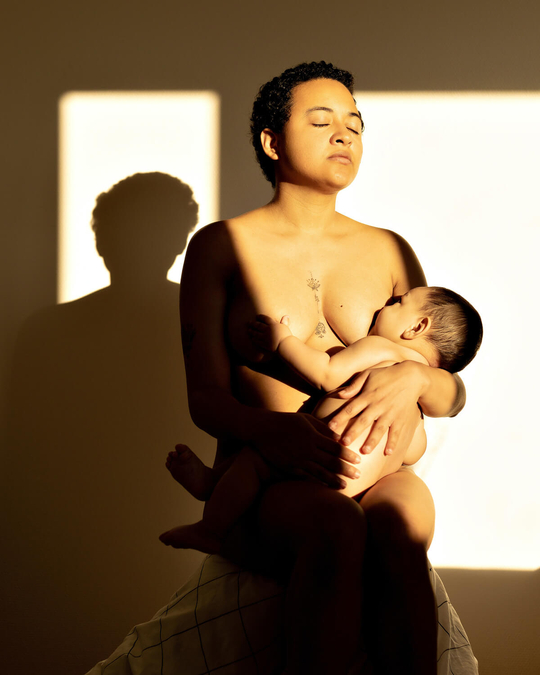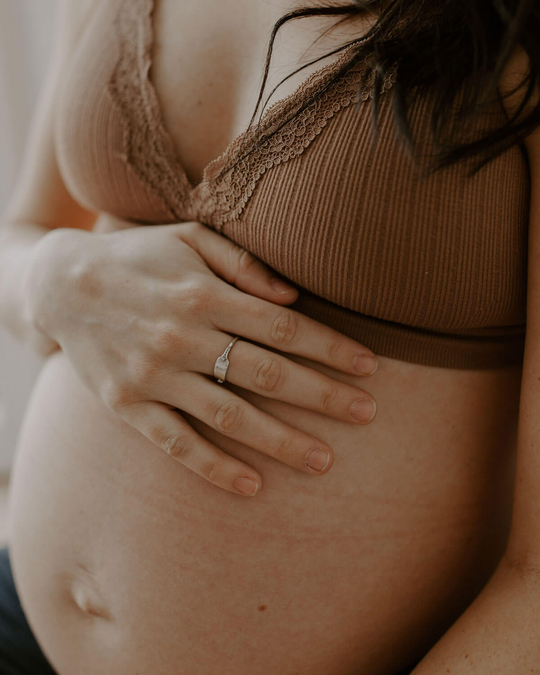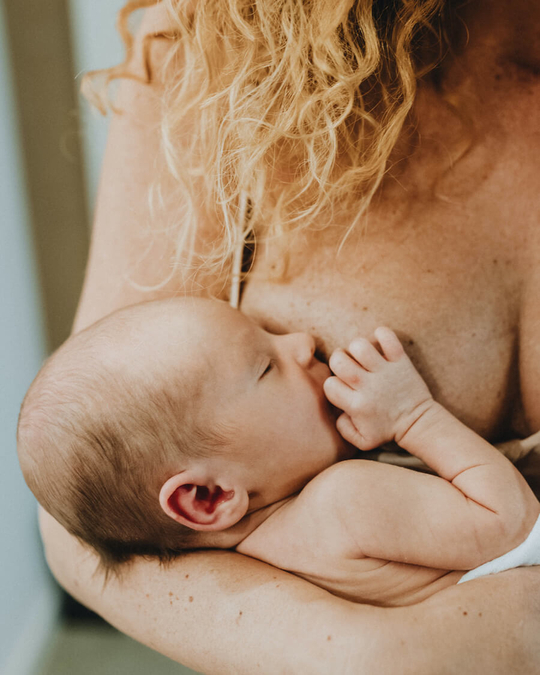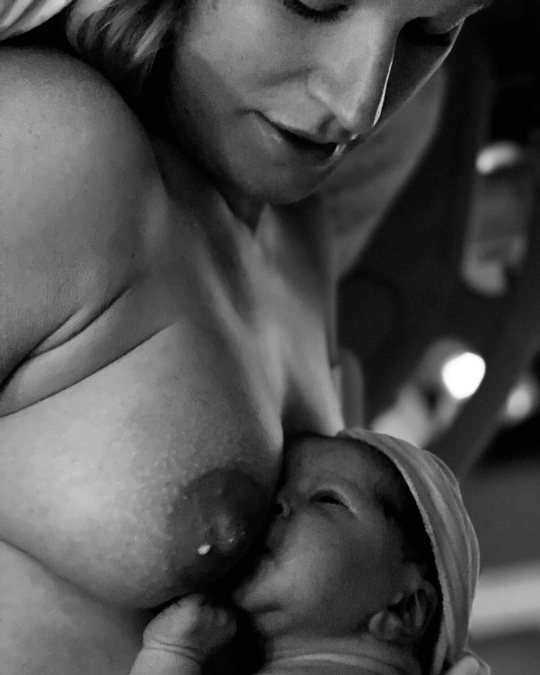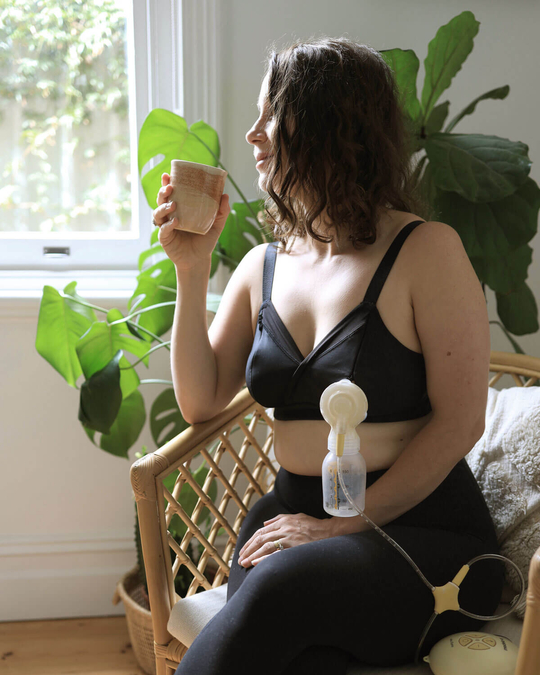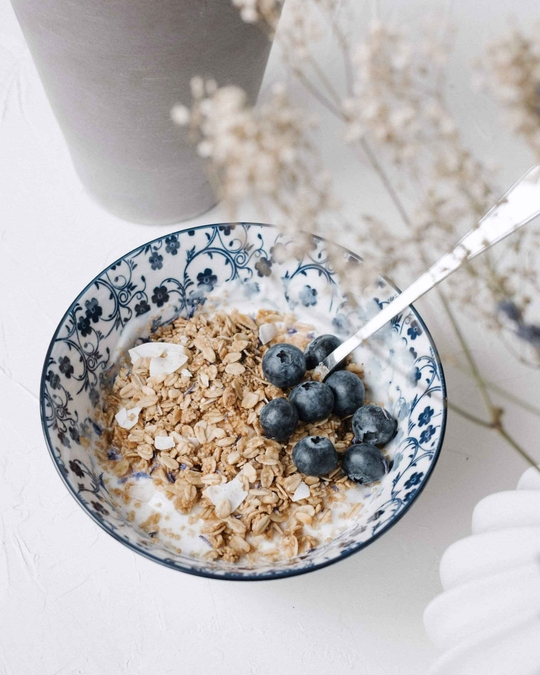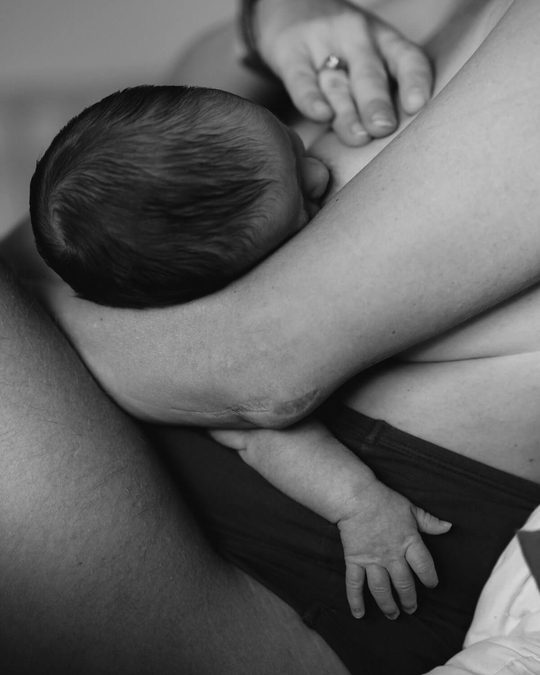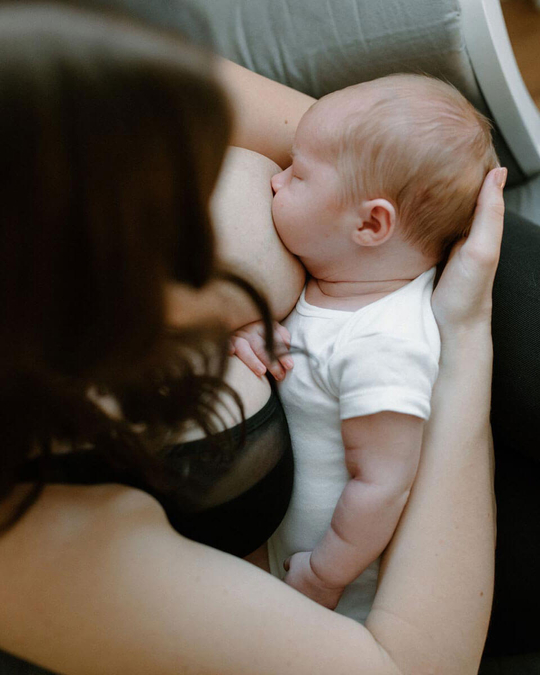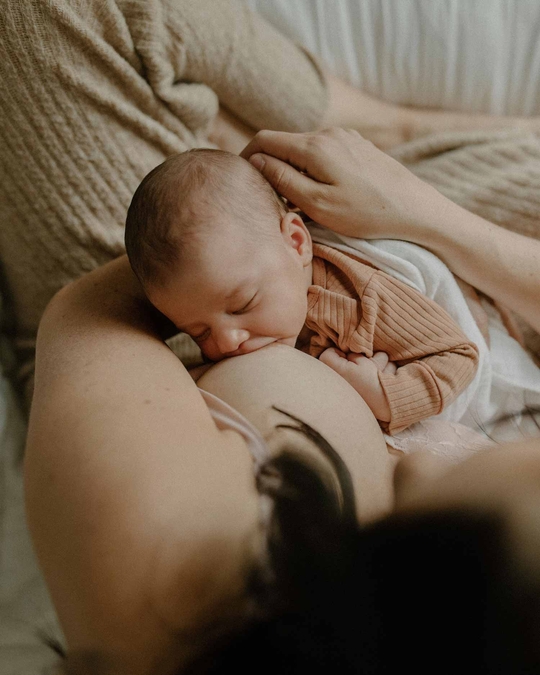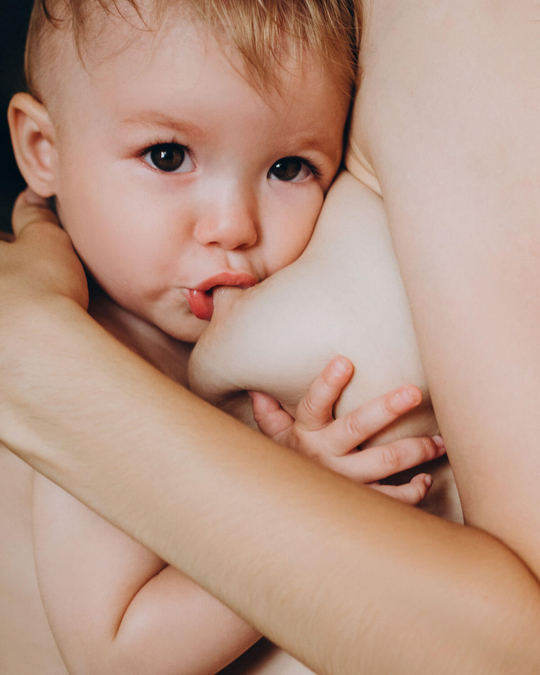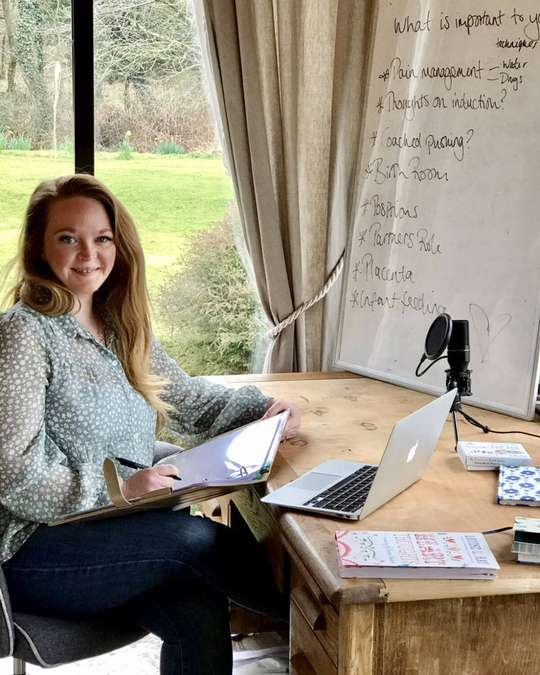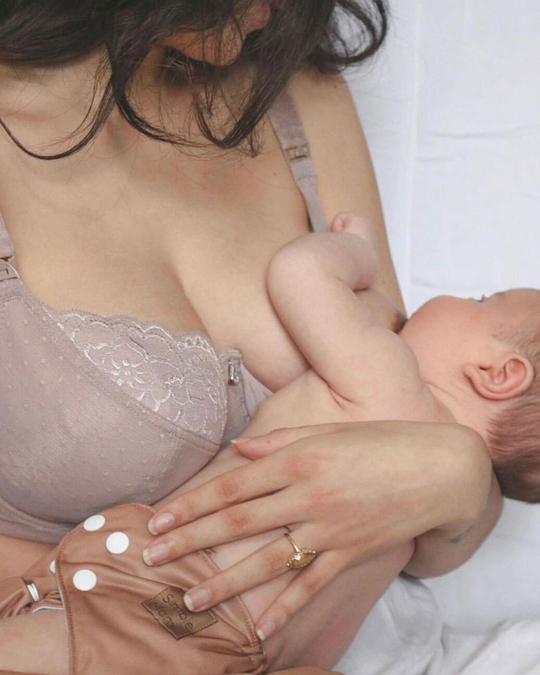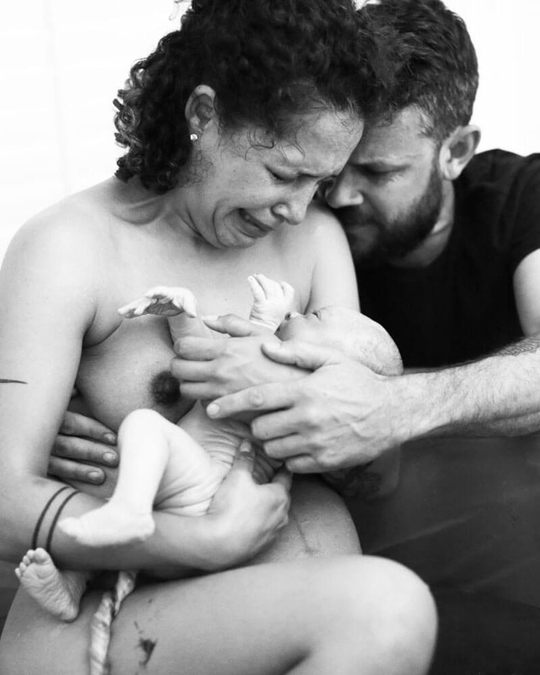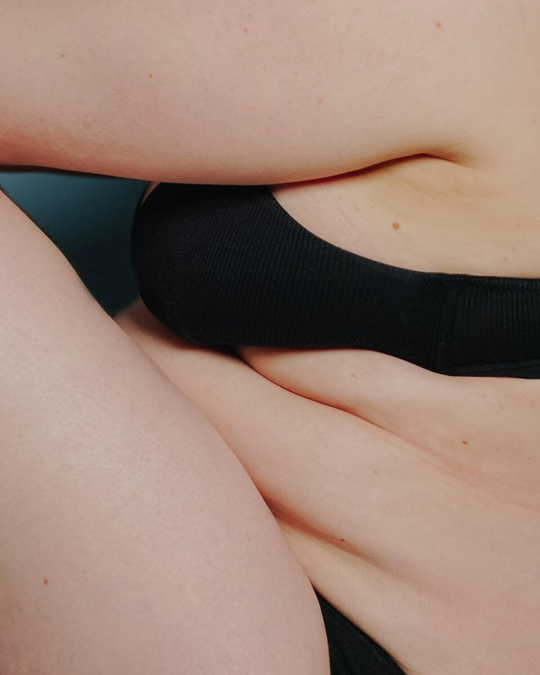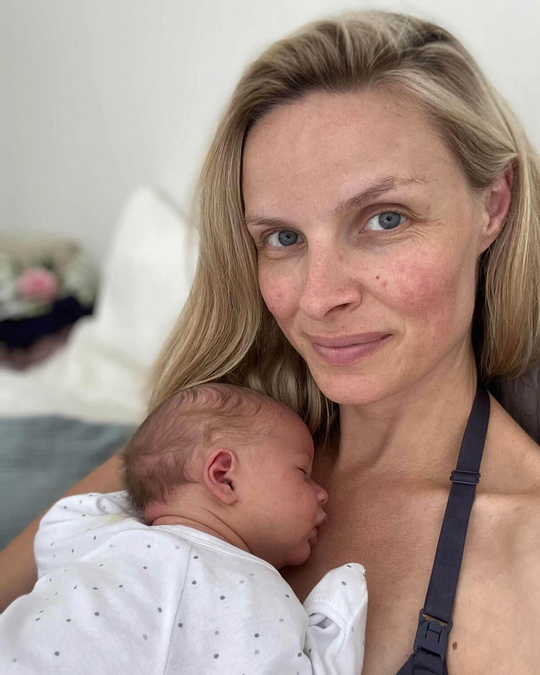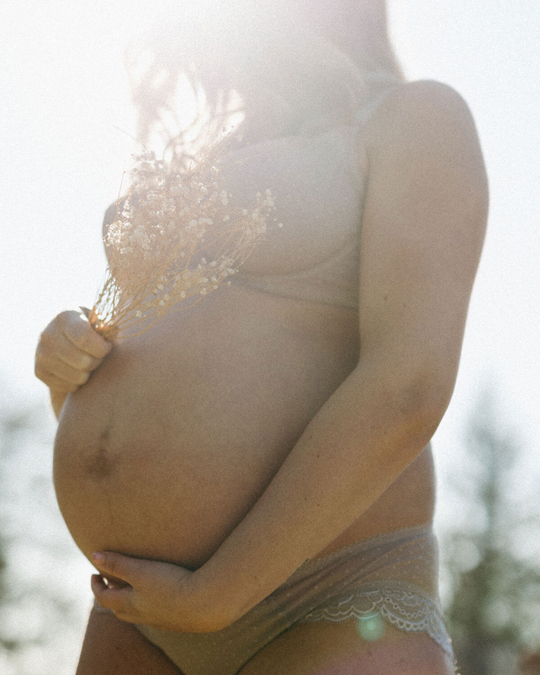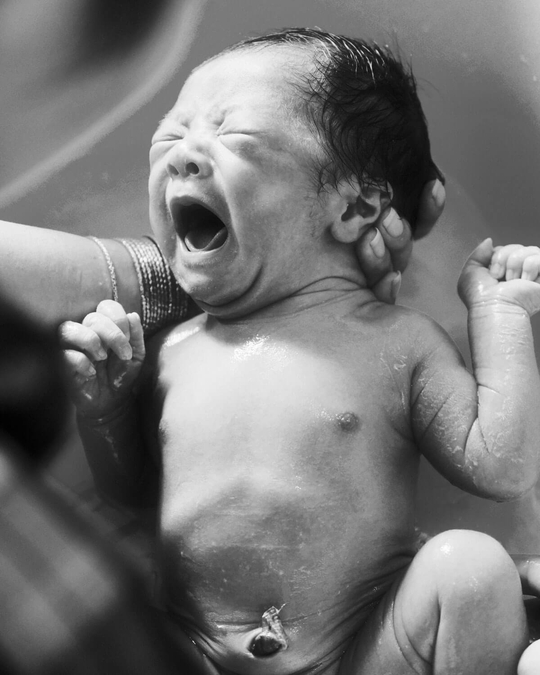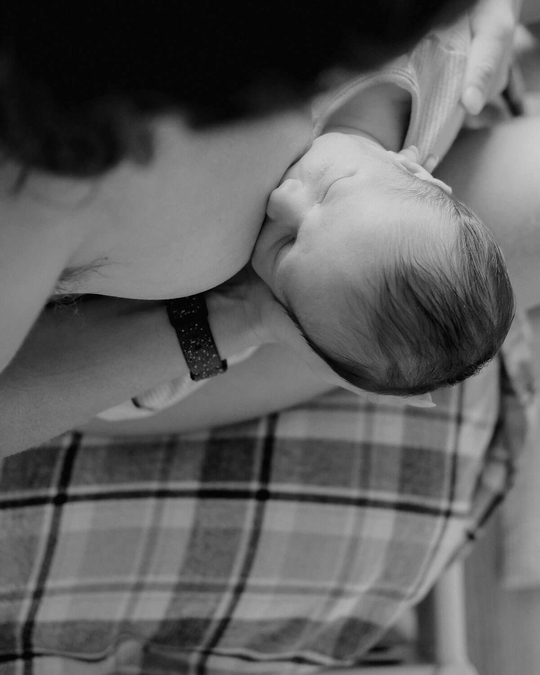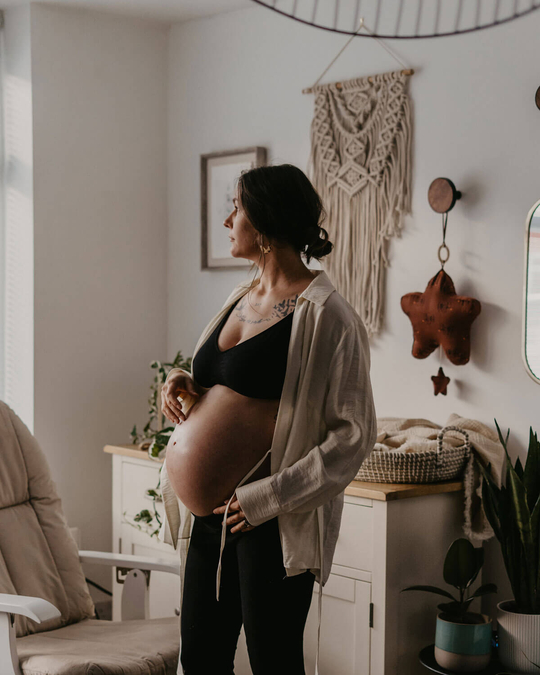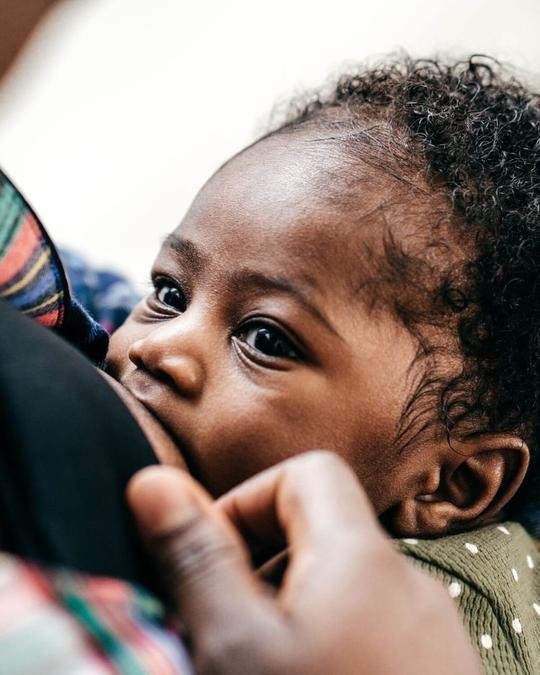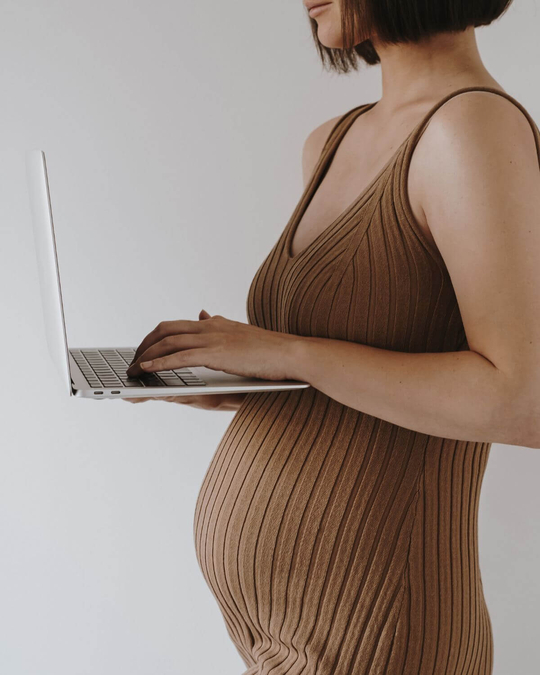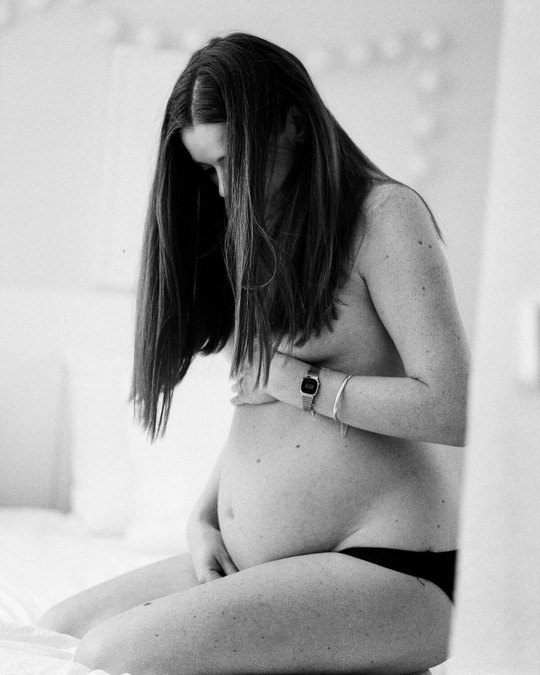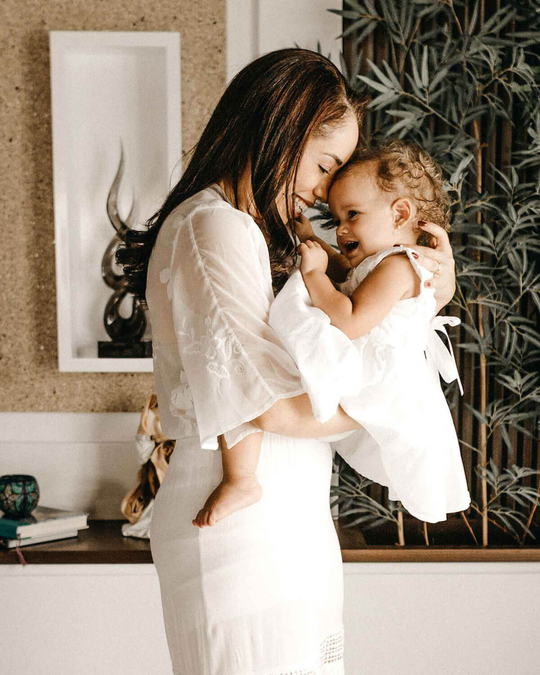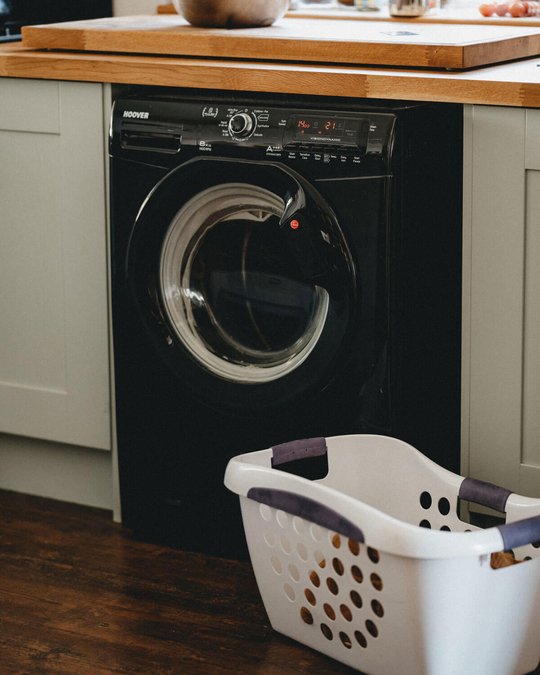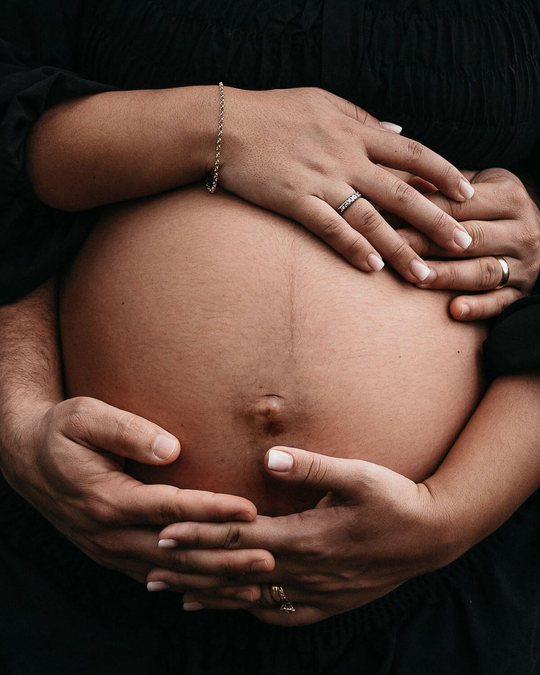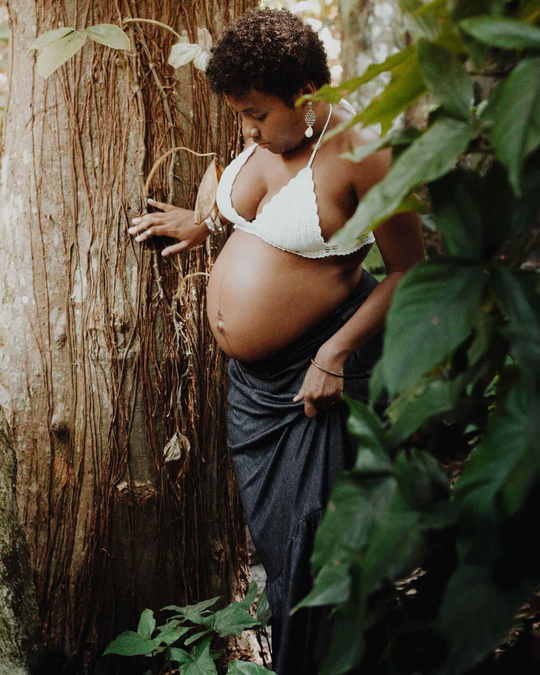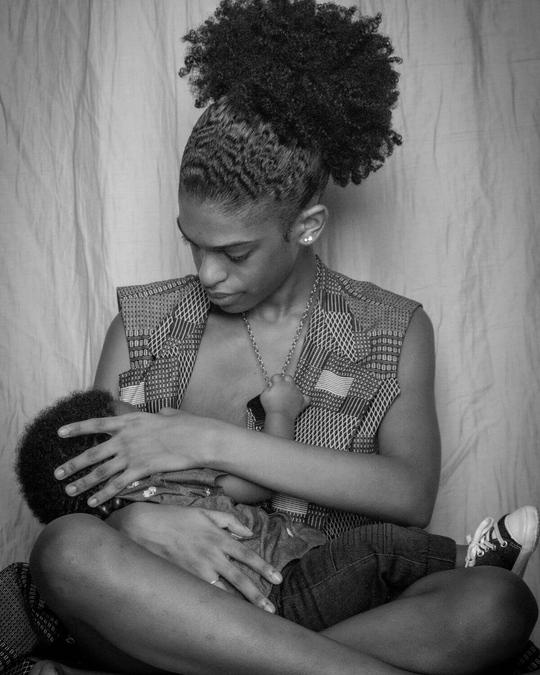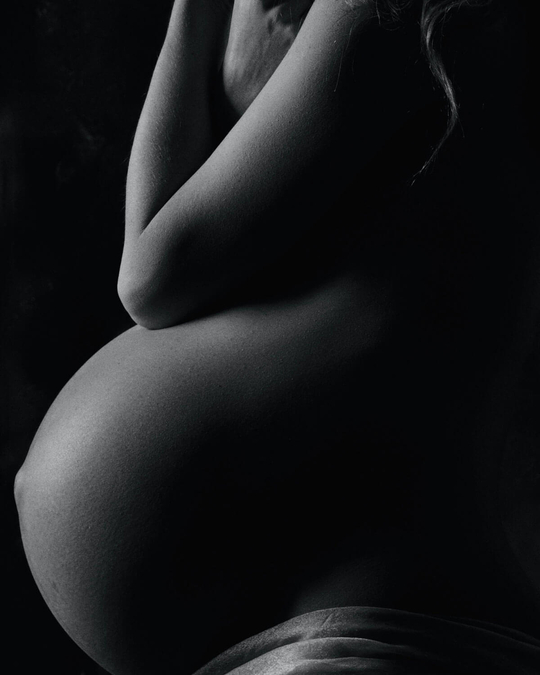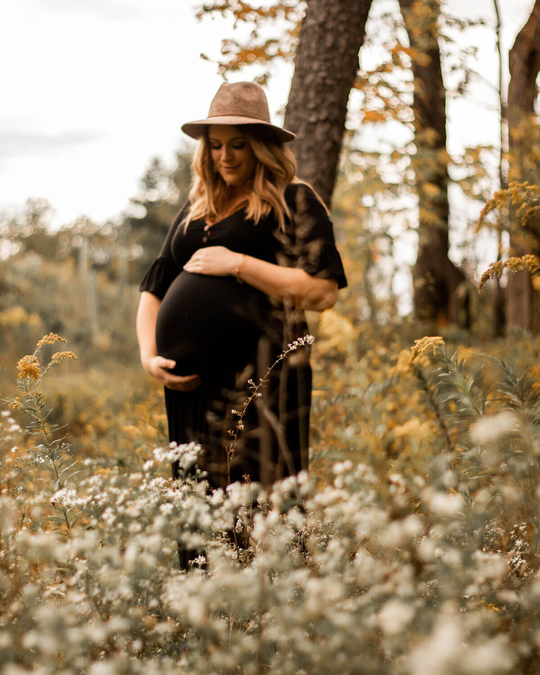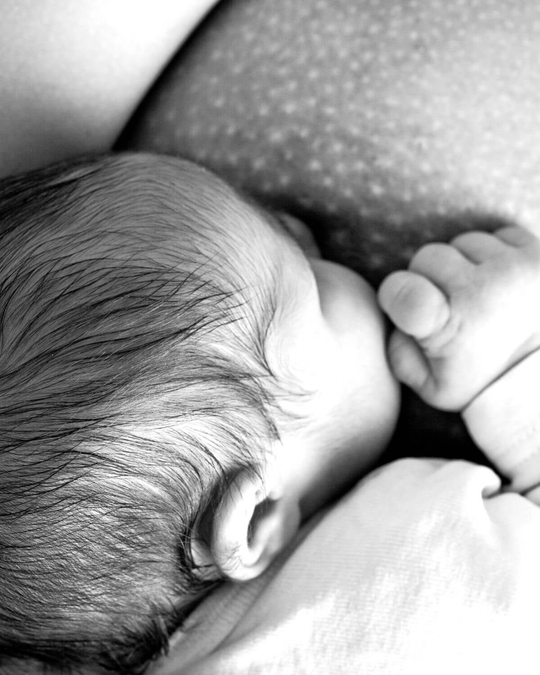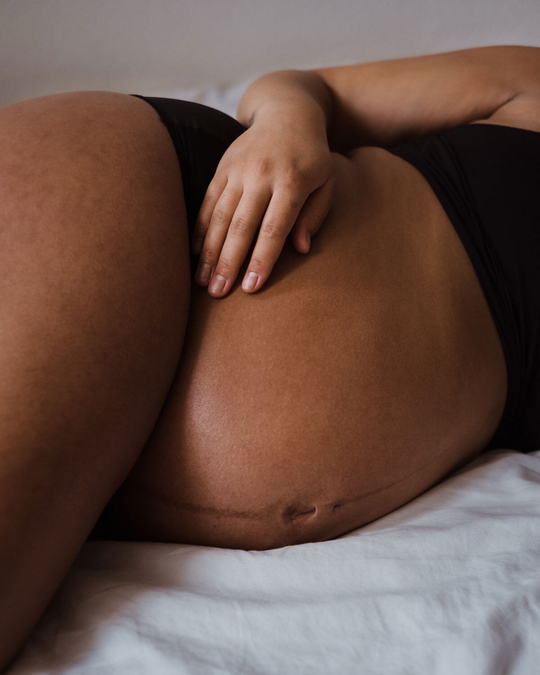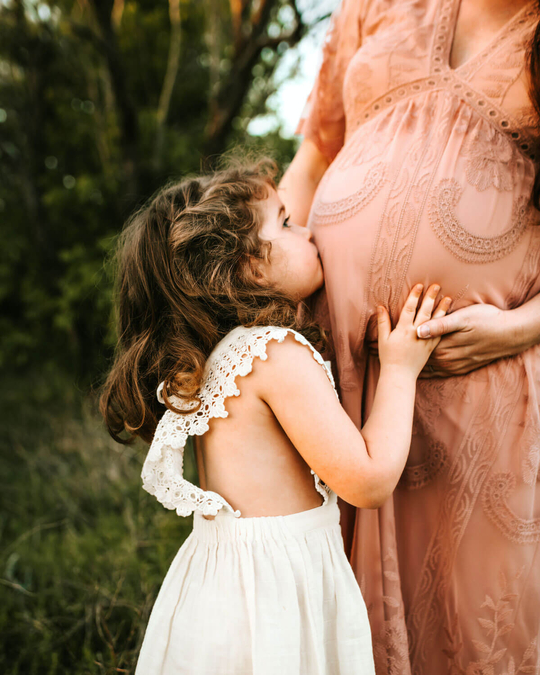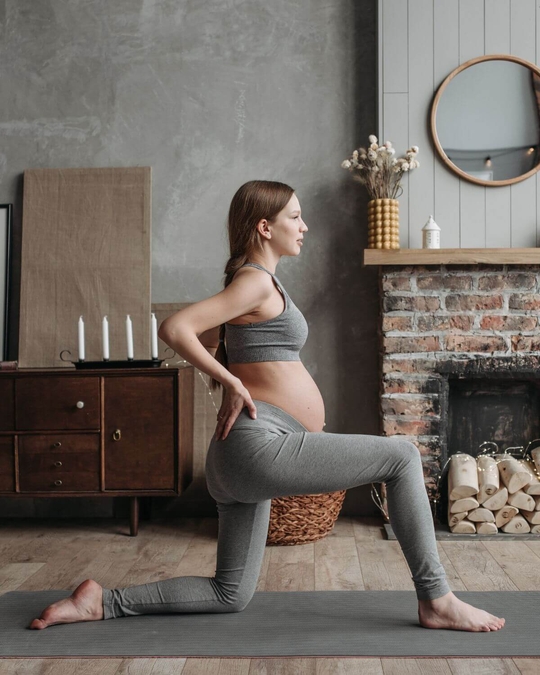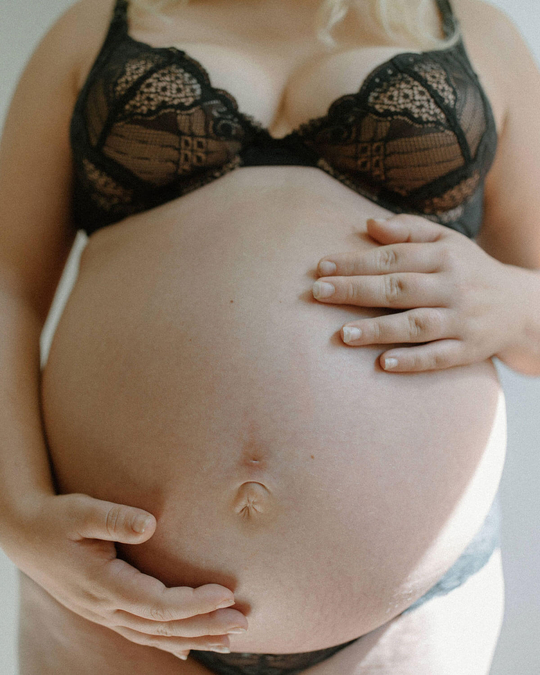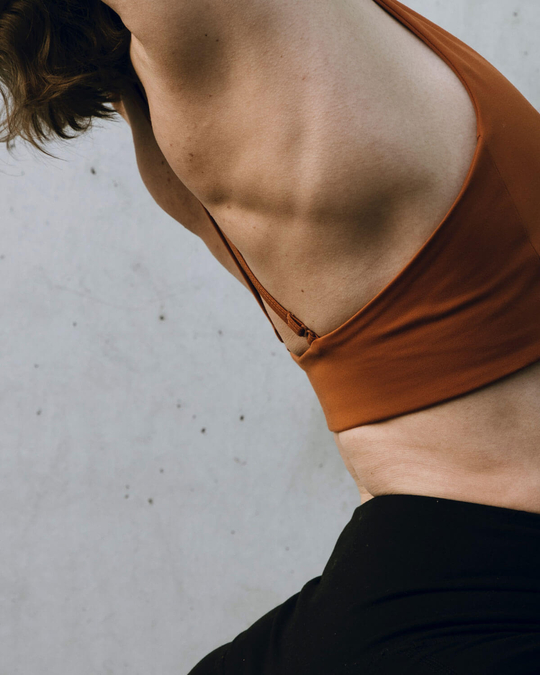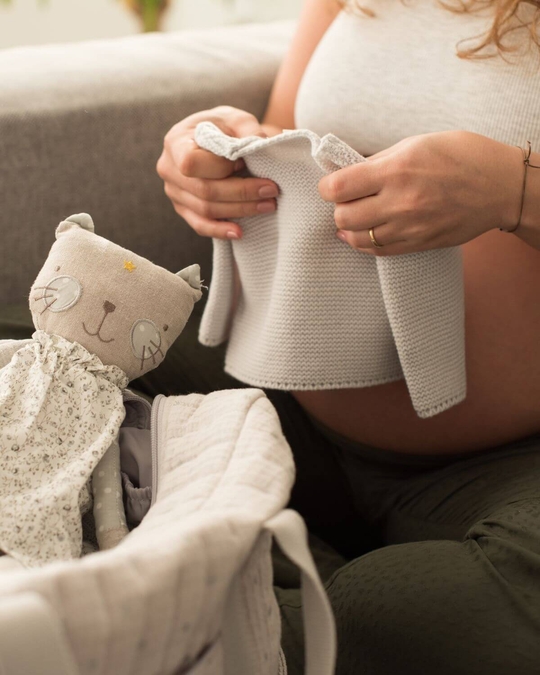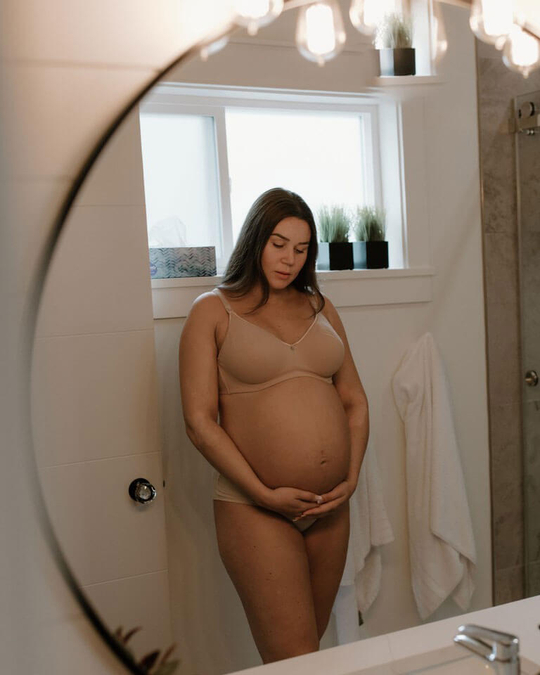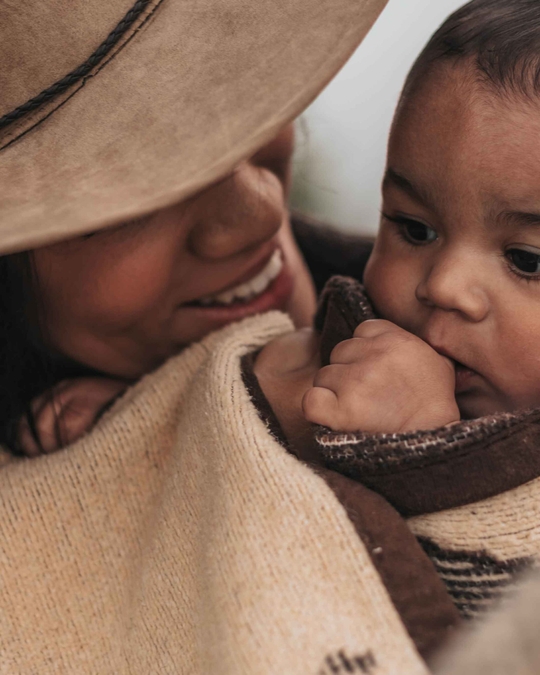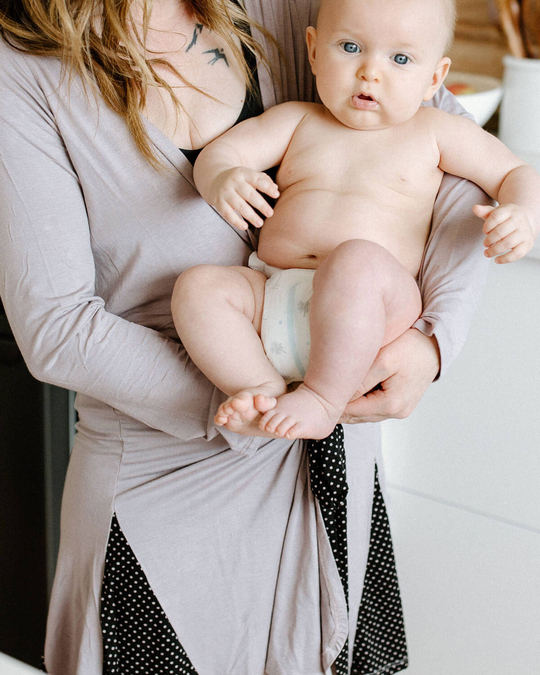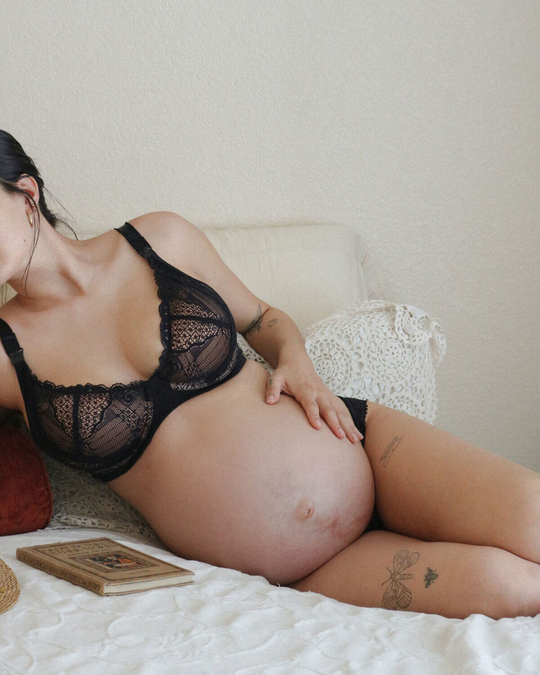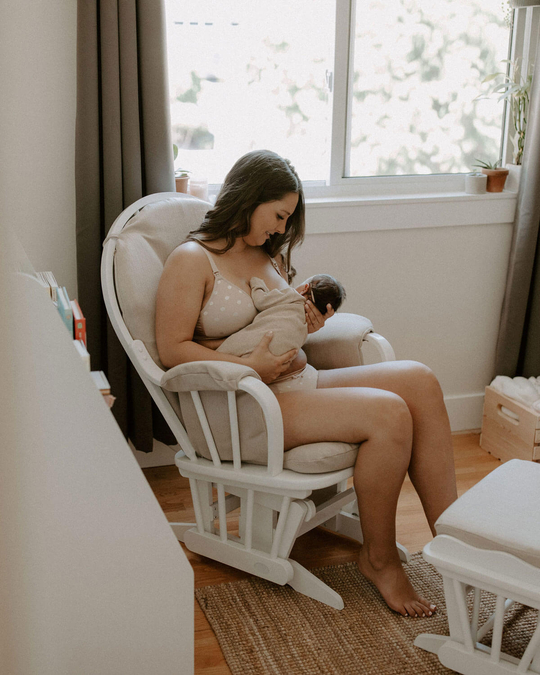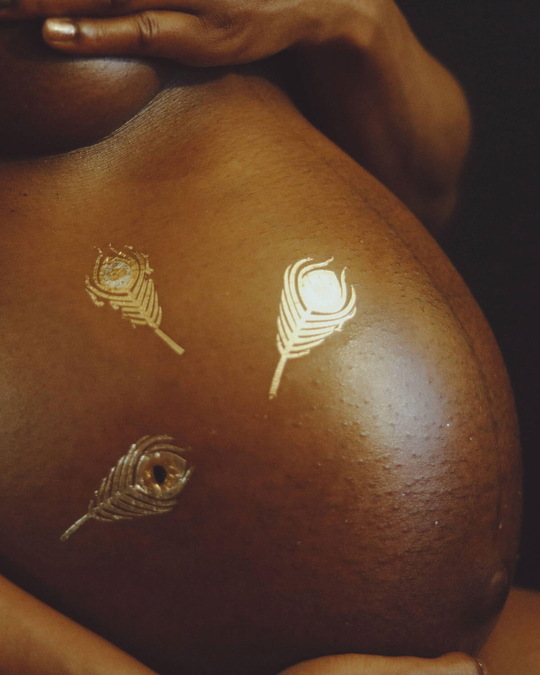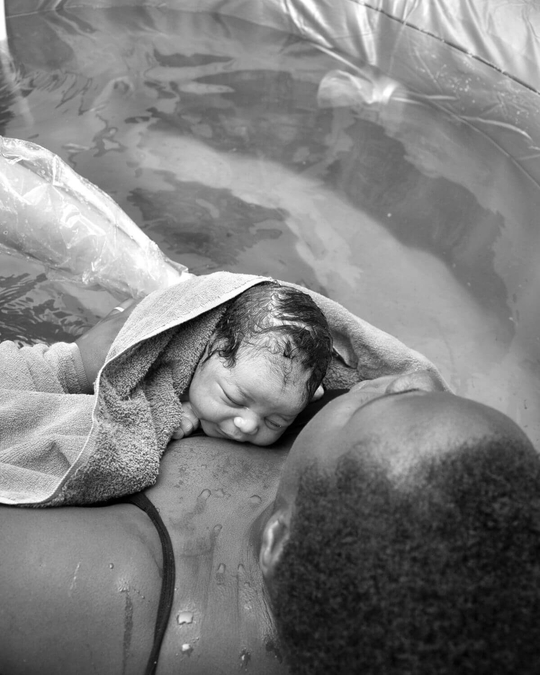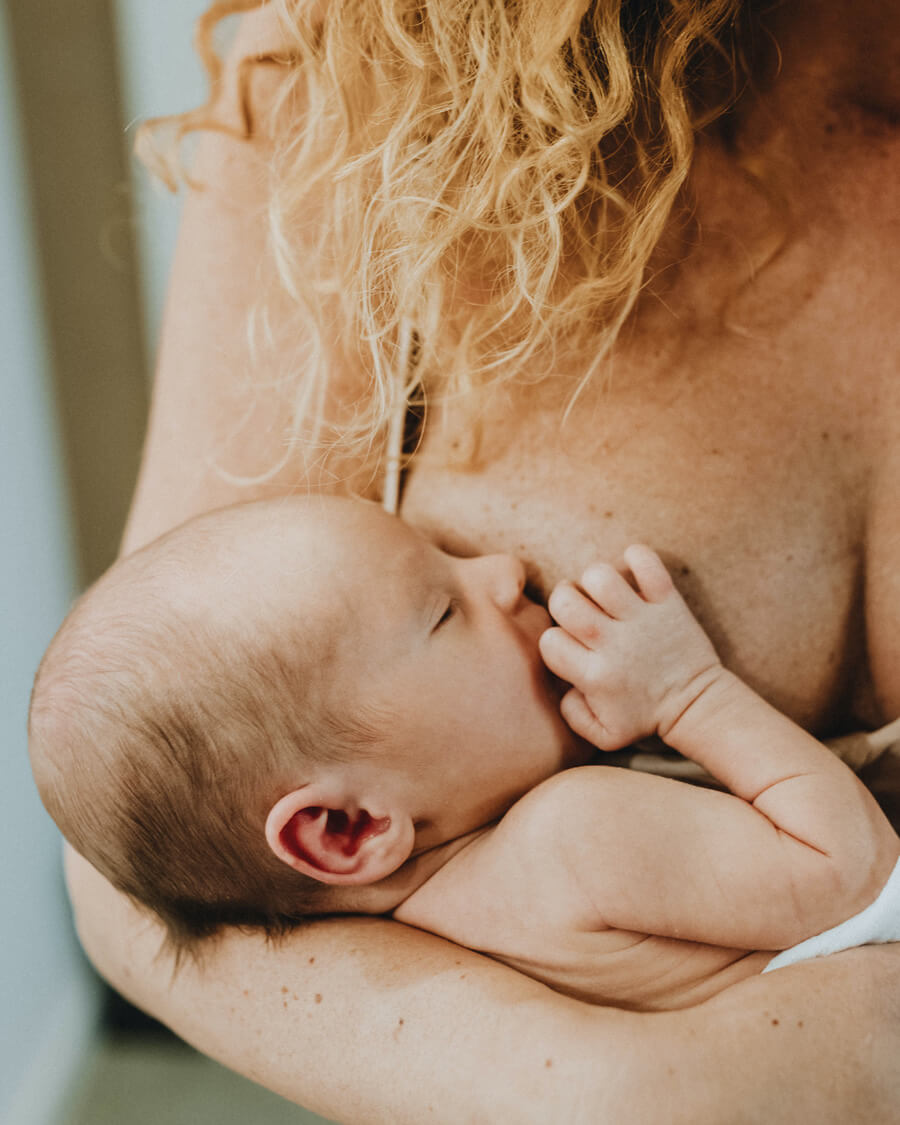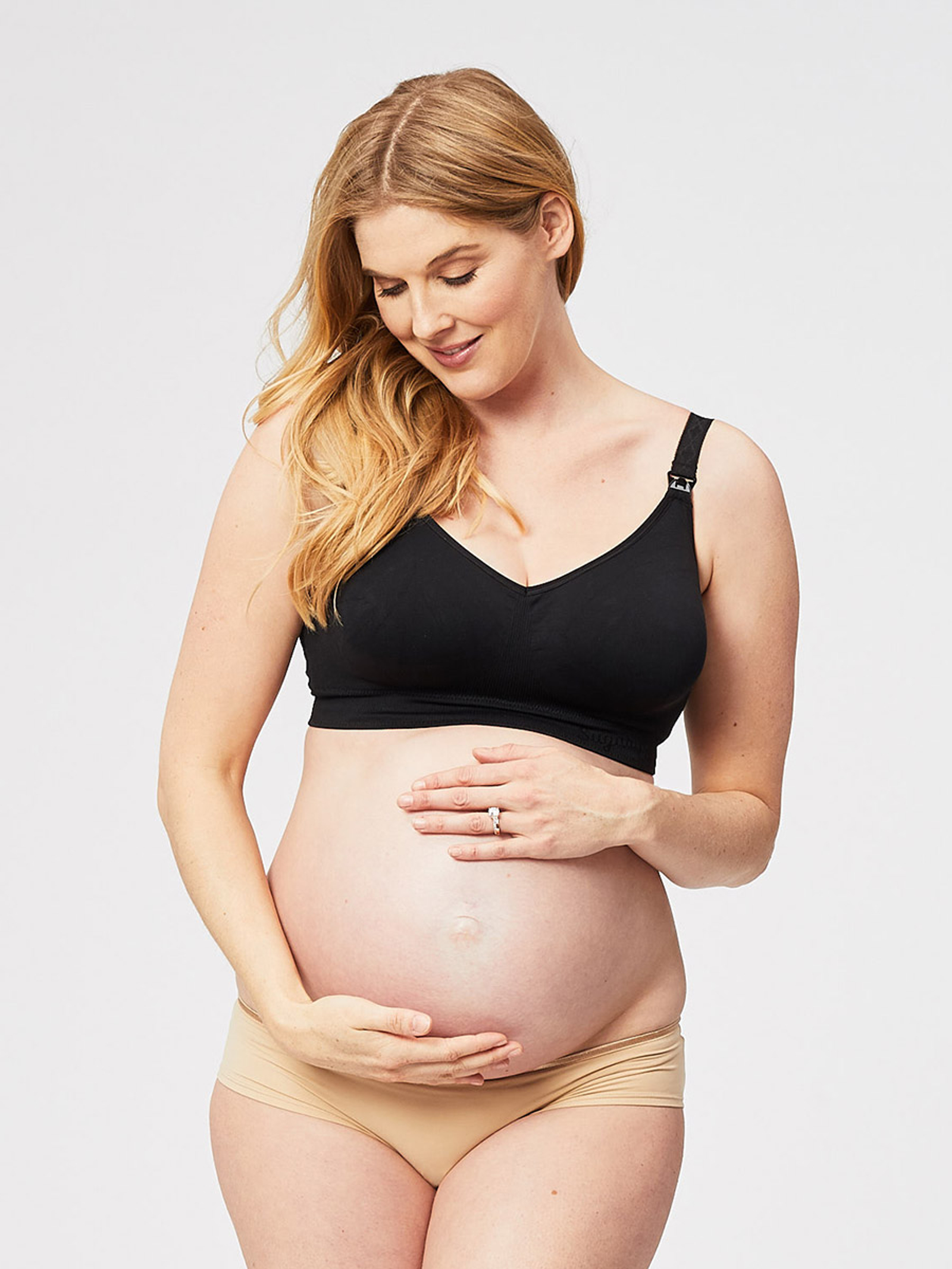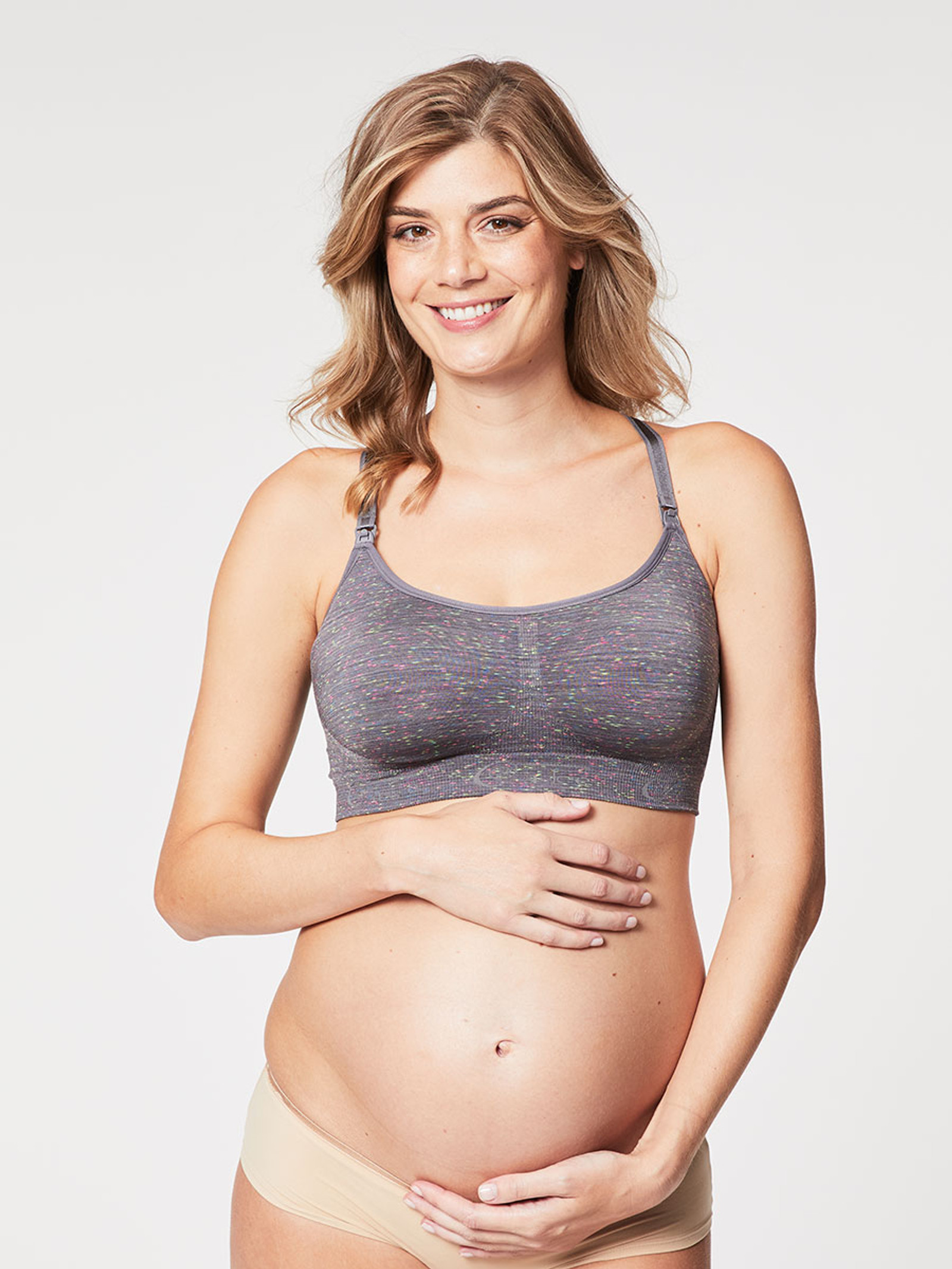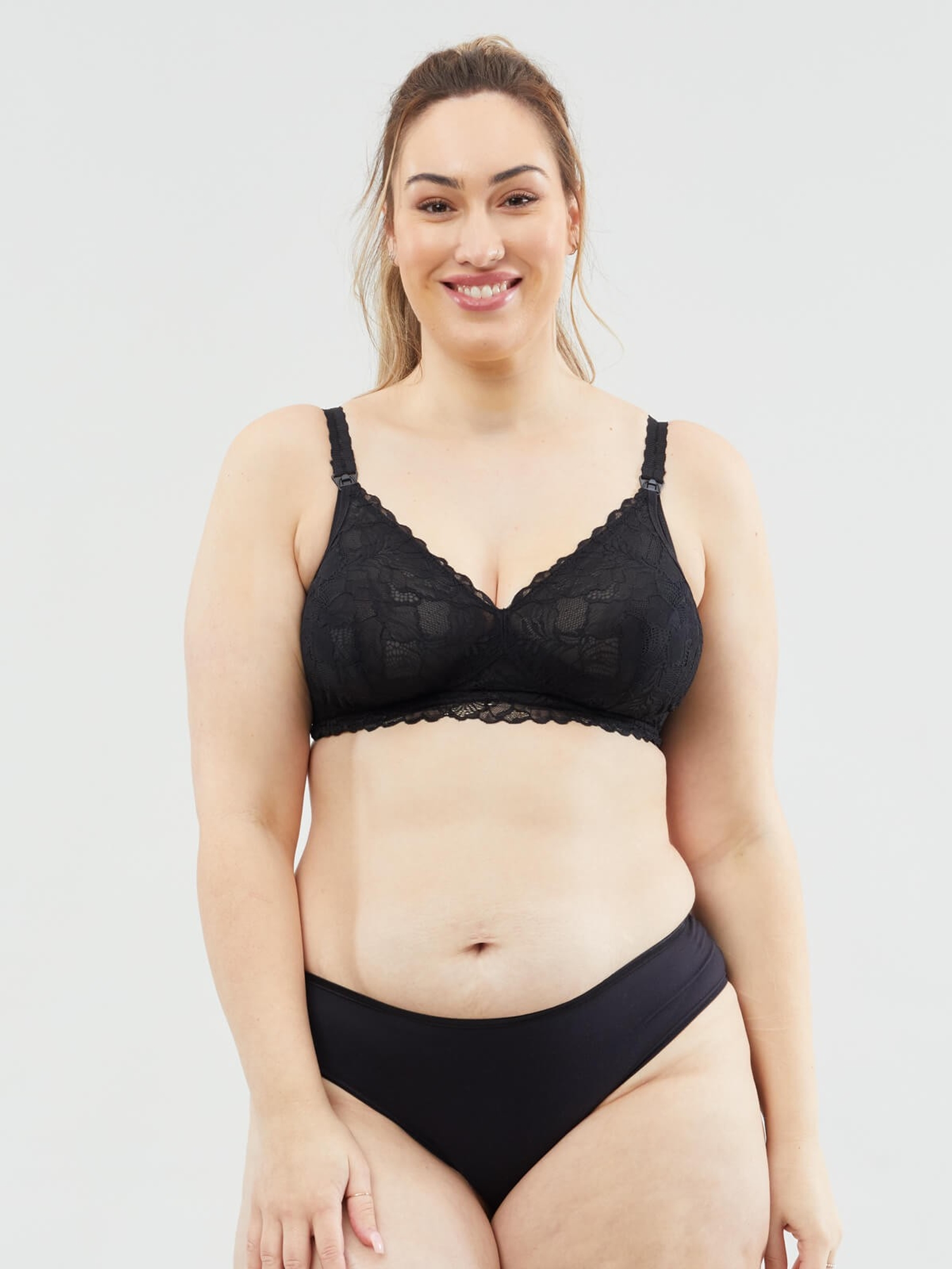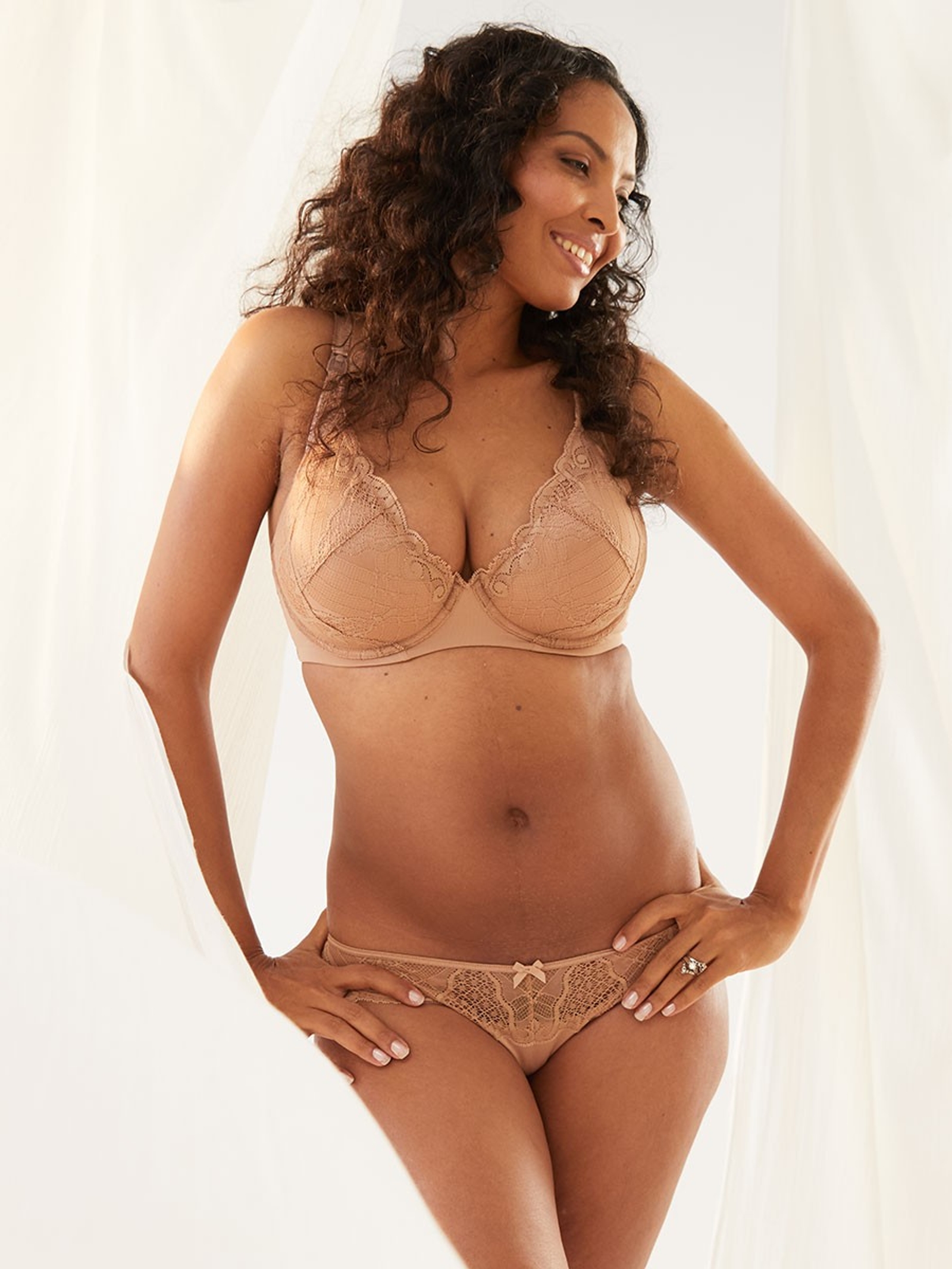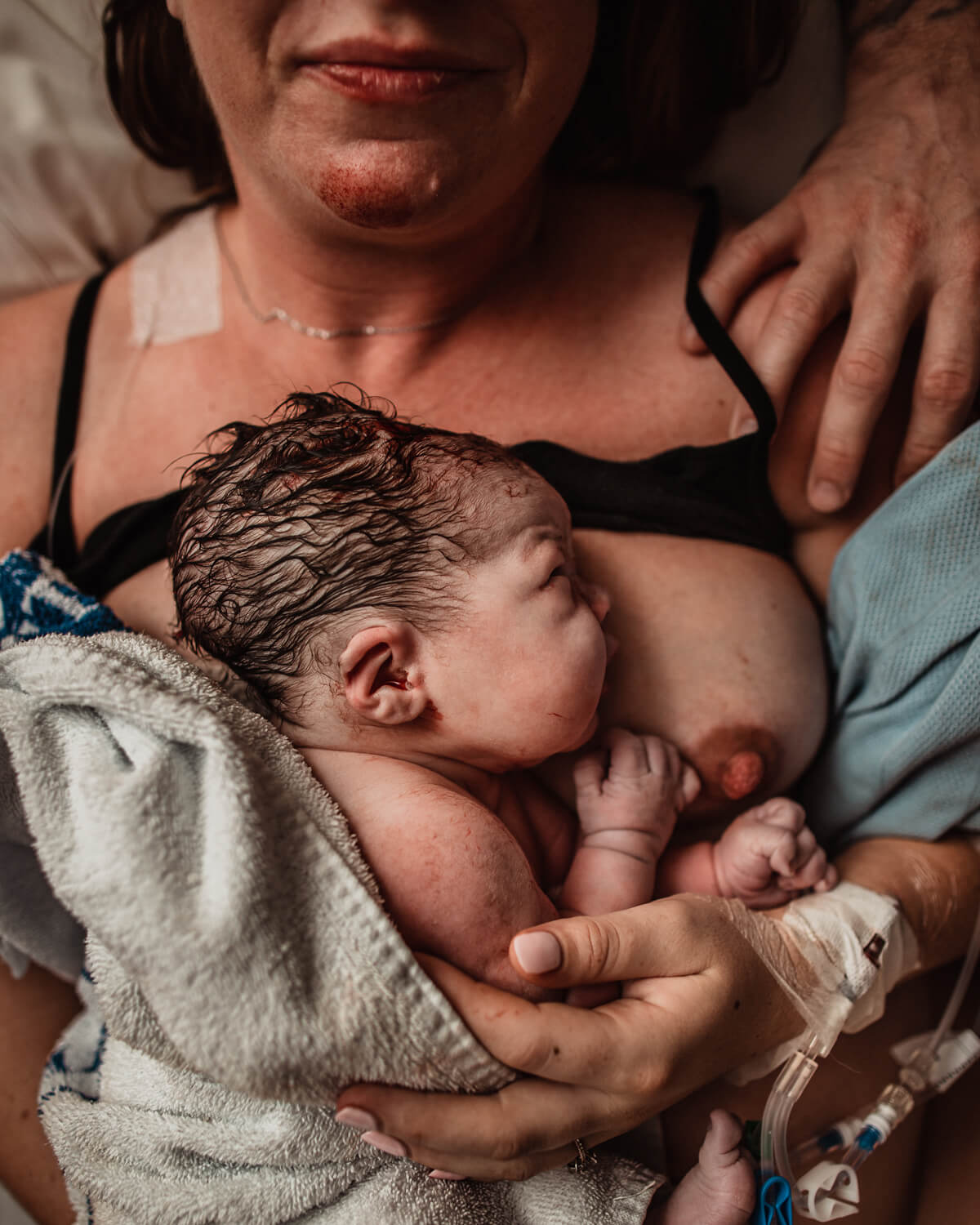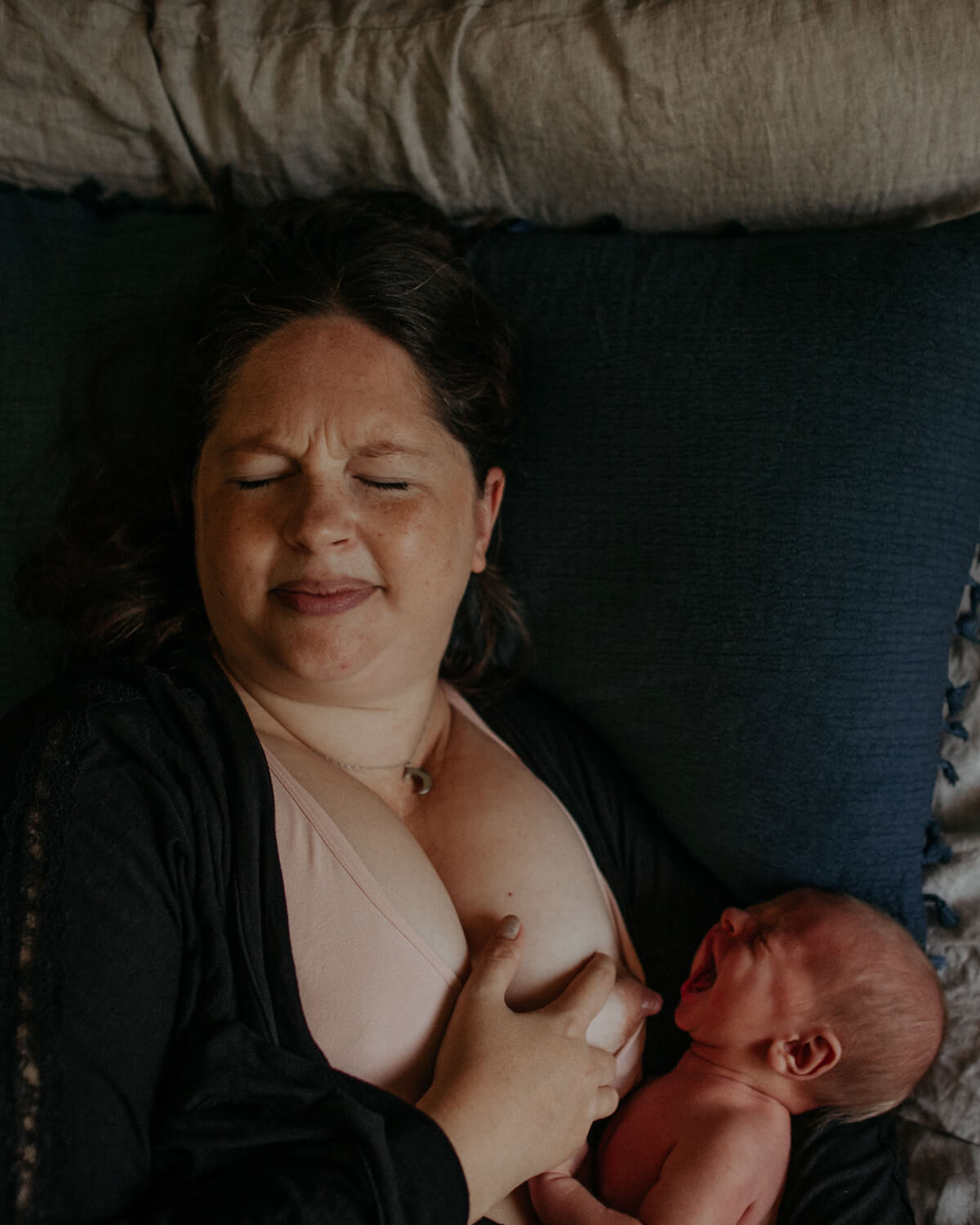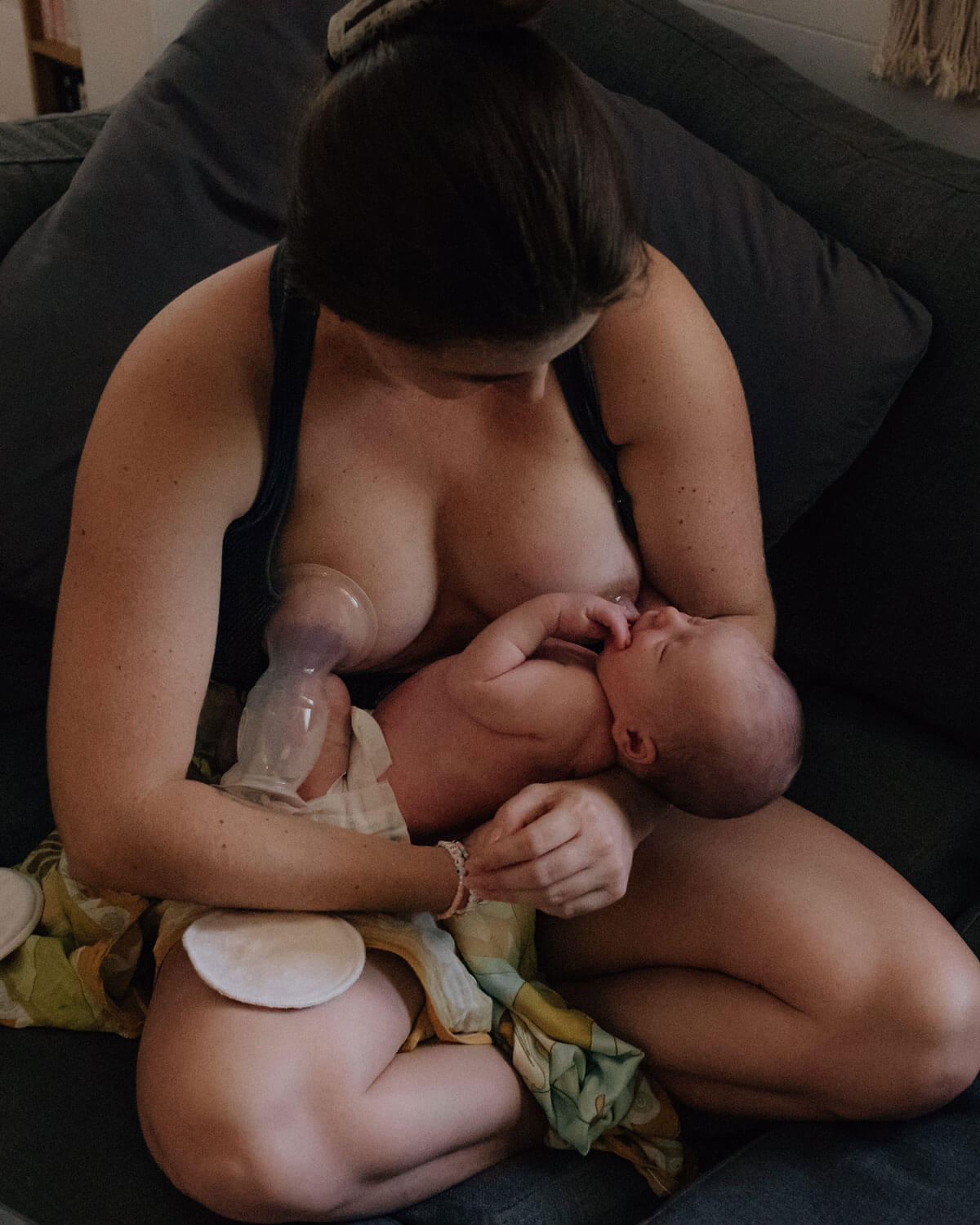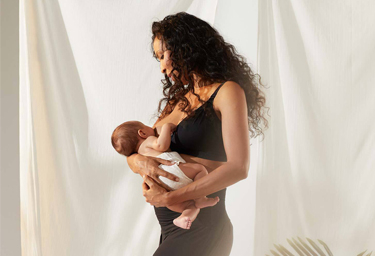Whether you are a first time mama or welcoming your 3rd baby into your family, you’ll likely have questions about how frequently your baby should be breastfeeding. While every baby is different in their own way, having a base for breastfeeding frequency by age can be a helpful reference to know what the norms are for your baby’s age.
As any breastfeeding mama knows, all of the numbers that go along with breastfeeding can be overwhelming! It’s our aim to break down the topic so you can have a clear understanding at every age and feel empowered to rock your breastfeeding and feeding goals!
When can babies go longer between feedings?
One of the most critical questions to answer when asking how often a baby needs to be fed is “how old is the baby?”. This is because the baby’s needs are going to depend on many factors, including age.
After birth, most babies will be expected to lose weight and have up until week 2 to be back to their birth weight. The amount of weight babies lose and how they gain weight can depend on different variables in the birth story including: birth medication and how long the mother was in labor, which can impact how much fluid they received and what interventions might have been used.
Typically, once babies are back to birth weight and have enough wet and dirty diapers (to show milk is going in!) and your milk supply is established, you can feed on demand which can mean some shorter intervals (every 2 hours) or longer intervals (4 hours). After babies have reached a place where their weight is stable and enough milk is being produced, they have enough energy reserves to sustain a longer time in between feeding.
When can you stop feeding baby every 3 hours?
Since every baby is welcomed into the world in a different way, when you can stop feeding baby frequently (i.e. every 3 hours) depends on some of the variables we mentioned above. If your baby has not reached birth weight, is not having adequate stool/urine outputs or you are having challenges with maintaining an adequate milk supply, a more structured feeding frequency will be appropriate.
Frequent feedings help provide your baby with adequate nutrition and stimulate milk production. After this point, you can stop feeding your baby on a schedule and transition to baby led (also known as on demand feeding).
Hang in there mama, we know it’s so tough to hold onto this schedule! Working with your paediatrician and IBCLC can be helpful in figuring out when you can switch to a more relaxed “baby led” schedule.

How often do you breastfeed by age?
To break down more of the specifics about how often to breastfeed your baby by age, here’s some general ranges to look out for.
| Infant Age | Number of Feedings | Weight Gain | Soiled Diapers | Wet Diapers |
| Birth – Week 1 | Minimum of 8 times a day and up to 12, with varying times in between. | Weight loss is typical within the first week as baby gets back up to birth weight. Loss should not be more than 10% from birth weight. | 1 dirty diaper for each day of life up until day 5, e.g. 1 stool on day 1, 2 stools on day 2, etc. Following this at least 3 stools per day. *Stools should be the size of a credit card & transition in colour. | 1 wet diaper for each day of life up to day 5, then at least 6 per day. |
| Week 2 – 4 | Minimum of 8 times a day and up to 12, with bouts of cluster feeding. | 4-7oz per week | 3 | 6-8 per day. |
| Week 4 – 6 | Minimum of 8 times a day and up to 10-12, with bouts of cluster feeding. | 4-7oz per week. | 3 | 6-8 per day. |
| 6 Weeks – 3 Months | Minimum of 6 times a day and up to 8 per day. | 4-7oz per week. | More infrequent. 1-3 per day. | 6-8 per day. |
Month 1
- Expect at least 8-12 feedings a day (24 hours) in order to stimulate milk production and support your baby’s weight gain. Breastmilk quickly digests in your baby’s stomach so depending on your baby’s energy needs they may need more some days vs others!
- The first four weeks of life are an essential time where your milk supply is being established for your breastfeeding relationship. Frequent and adequate milk removals (whether by breastfeeding or pumping) is essential for ensuring a robust milk supply as it is a supply and demand system.
- Your baby should be having regular wet and dirty diapers as markers of good milk intake with at least 2 dirty diapers and up to 6 wet diapers a day.
- By the end of month one, your baby may take anywhere between 25-35 ounces of liquid gold a day!
Month 2-3
- By two months of age your milk supply has likely been established (thanks to all those frequent feedings you have done!) and you can nurse on demand. Typically, babies will keep a more regular schedule at this age and you can expect between 6-8 feedings a day, with a day here and there where they are more “snacky” at the breast.
- Around six weeks there is often a growth spurt and you might expect more frequent cluster feedings from your baby. Remember that cluster feedings are your baby’s way of telling your body to make more milk and are not necessarily a sign of low milk supply.
Month 4-6
- At month 4-6 you and your baby are likely experienced breastfeeders! You can continue to use your baby as your guide and let them feed on demand. Depending on your milk supply, at this age your baby may be a very efficient feeder and do more quick nursing spurts (5-10 minutes)!
- Depending on other developmental milestones that might be happening in your baby’s life at this time with changes in sleep, environment or caregivers, it is also important to remember that breastfeeding doesn’t just provide nutrition, but also comfort and connection.
Month 6 and Beyond
- By 6 months of age your paediatrician is likely discussing the introduction of solid foods based on your baby’s readiness. Signs of readiness include: your baby’s ability to sit up on their own, absence of the tongue thrust and an interest in food at the table!
- Breastmilk is still the primary source of nutrition even when solids are being introduced, so while you might be offering solid foods either by purees or via baby led weaning, your baby will still be nursing on demand anywhere between 6-8 times a day and having solid food as a compliment to their breastfeeding.
- While your baby continues to build their repertoire of solid foods after 6 months you can continue to offer breastmilk on demand until age 1, as most paediatric associations (for example the American Academy of Pediatrics) recommend providing breastmilk and solid foods until this point. After the age of 1 most paediatricians recommend introducing cows milk as it provides a healthy amount of fat that supports brain development in infants at this age.
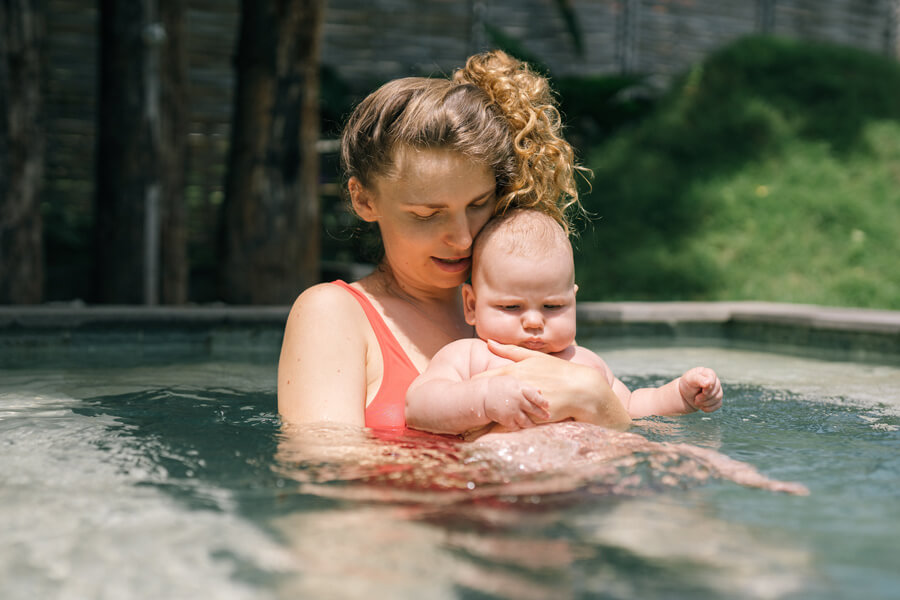
How long does the average woman breastfeed?
How long you and your baby decide to breastfeed past the age of 1 depends on how each of you feel about your breastfeeding relationship! Globally, the World Health Organization (WHO) recommends breastfeeding alongside solid foods until the age of 2. Statistically, however, many women do not breastfeed beyond the 6 month mark and even fewer make it past the 1 year mark.
This is based on a wide variety of economic and cultural factors ranging from maternity practices, affordable child care and health care policies. While the recommendation to introduce cow’s milk at age 1 is provided by paediatricians, the nutritional profile of breastmilk remains even after 1 year! Your baby will continue to benefit from the nutritional properties of breastmilk, such as antibodies and immunity boosters, and they will also be able to maintain an amazing connection with you.
At what age is breastfeeding not beneficial?
There is currently no age where breastmilk has been shown to not be helpful to your child so you can continue breastfeeding for as long as you and your child both choose to do so. There has been extensive research to show that extended breastfeeding (beyond 2 years) has significant benefits for infant oral facial development, attachment and nutritional/health benefits.
Wherever you are in your breastfeeding journey, mama, know that only YOU know what is right for you and your baby. Trust that you will continue to lean in and learn from each other as your breastfeeding relationship evolves.
LIKE WHAT YOU READ?
Join CakeMama Club & get 10% OFF your first order!
Plus you’ll get tips + tricks for pregnancy, postpartum & breastfeeding, get member-only offers, earn CakeCoins every time you shop + more. Learn more






